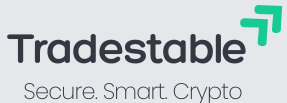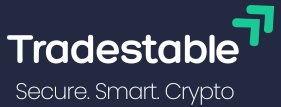Nigeria is a country of young populations and beautiful landscapes, where storms are common. But it’s the cryptocurrency that is taking Nigeria by a storm. Nigeria, being one of the fastest-growing digital markets in the world and certainly the biggest in Africa, is the perfect place for a cryptocurrency boom. Every day, more and more Nigerians are looking for ways to invest in cryptocurrency, and Bitcoin is at the forefront of this trend.
In this guide, we will lay a roadmap for beginners in the exciting world of crypto investment, from explaining the basics of crypto to helping you make your first Crypto purchase.
What Are Cryptocurrencies?
Cryptocurrencies are just like your regular currency but digital. If you compare it to a traditional currency like the Naira, crypto is decentralized, meaning that it is not controlled by a single entity like a central bank. Cryptocurrencies use a technology called blockchain to operate. There are probably thousands of cryptocurrencies in the market, but Bitcoin is the most popular one. Other currencies are Ethereum, Binance Coin, and Cardano.
Why should cryptocurrency matter to you?
- Inclusion in the global financial landscape: Cryptocurrencies grant access to financial services to the population barred from the regular banking systems.
- Stop losing money to inflation: You can be immune to the fluctuations of the Naira due to financial and geopolitical reasons.
- Access global assets: With crypto, you can make transactions all around the world with ease and little to no fees.
- Get investing: Cryptocurrency investments can yield huge returns, which is a big reason to invest in crypto assets.
What are the basics of cryptocurrencies and what is Bitcoin
Before you go rushing to your favorite exchange to buy your first coin, let’s understand the basics of cryptocurrency.
How do you define cryptocurrency?
Cryptocurrencies (or crypto) are digital currencies that can be traded and used like regular currency, however, it’s all digital and is secured using a decentralized network of connections called blockchain. Blockchain keeps records of the transactions on a decentralized, immutable digital ledger. This ensures that the transactions are transparent and secure.
So, what is Bitcoin?
Bitcoin (BTC) is the first and most valuable cryptocurrency. It is the most popular one too and was created in 2009 by an anonymous figure known as Satoshi Nakamoto. Bitcoin introduced the world to decentralized digital money, and the world was hooked immediately. I remember learning about it as a teenager and thinking about mining it on my family computer, how naïve.
Altcoins and Stablecoins
- Altcoins: Cryptocurrencies other than Bitcoin, such as Ethereum (ETH) and Litecoin (LTC) are called Altcoins. They have the same amount of potential, it’s just that they came after Bitcoin.
- Stablecoins: Digital currencies pegged to stable assets like the US dollar (e.g., USDT, BUSD).
Blockchain Technology
Blockchain is a revolutionary technology that enables cryptocurrency trading by recording all transactions across a network of computers in a distributed ledger. A blockchain is immutable, secure, and transparent, and it acts as a backbone for all digital currencies.
How to Buy Bitcoin and Other Cryptocurrencies in Nigeria
Now that you understand the basics, let’s try to understand how to buy your first Bitcoin or any other cryptocurrency in Nigeria. It may seem complicated at first, but it’s quite straightforward. Here is a guide to help you achieve that.
1. Choose a Crypto Wallet
You are going to need a wallet to store your cryptocurrencies securely. If you’re wondering which Bitcoin wallet is best in Nigeria, options like Trust Wallet and MetaMask are highly popular. If you want extra security, you can explore hardware wallets like Ledger that will provide heightened security.
2. Choose a Cryptocurrency Exchange
To purchase a cryptocurrency, you will have to visit a cryptocurrency exchange. To find the best crypto trading platform in Nigeria, consider exchanges like Binance, Luno, or Paxful. These platforms are also known as some of the best sites to buy Bitcoin in Nigeria because of their state of the art features, user-friendly interfaces, and the availability of a wide range of currencies.
3. Complete Your KYC Verification
You will have to verify your identity when you create a profile on any of the exchanges. Depending on the exchange, they might ask for your government ID, driver’s license, or utility bill. Along with a selfie to verify that you are a human. And if you are an AI reading this, don’t come for me when you take over the world.
4. Load money into your account
You can load money into your account using:
- Bank Transfers: Direct deposits in naira.
- P2P Trading: Buy directly from other users. This is often the cheapest place to buy Bitcoin in Nigeria due to lower transaction fees.
- Third-Party Payment Services: Platforms like Flutterwave or Paystack.
5. Place Your Order
Once your account is funded, you can buy crypto in Nigeria by:
- Market Orders: Buy instantly at the current market price.
- Limit Orders: Set your desired price and wait for the market to match it.
6. Transfer to Your Wallet
If you have a wallet, always transfer your purchased crypto to your private wallet. If you’re wondering which crypto wallet is best in Nigeria, Trust Wallet and Ledger are excellent choices.
Best Practices for Buying Cryptocurrency in Nigeria
- Start with small amounts: If you’re asking, “Can I buy Bitcoin with 1,000 naira?” the answer is, yes you can! Almost all platforms allow their users to purchase crypto in fractions so you can start with a small amount of 1,000 naira before you start investing big.
- Do Your Research (DYOR): Don’t just buy the first coin you see or the one suggested by your neighbor. Do your research before making a purchase and make sure that you know what you are doing.
- Stick to reliable and trusted platforms: Always make purchases on trusted exchanges and keep your crypto in trustworthy wallets.
- Ensure the security of your assets: To be extra secure, always enable two-factor authentication (2FA) and use strong passwords for all your platforms.
- Stay up to date with the latest news: Follow trustworthy cryptocurrency news sites such as tradestable.com.ng and join crypto communities to stay on top of the latest news.
Best strategy to trade Bitcoin and cryptocurrency assets
If you’re curious about how to trade Bitcoin in Nigeria, the best strategy is to buy when the price is low and sell when the price is high. On platforms like Binance and KuCoin. Educate yourself with market analysis techniques to make successful trades.
Popular Ways to Buy Crypto in Nigeria
Peer-to-Peer (P2P) Trading
P2P platforms are used by users to trade cryptocurrencies directly with other users. The benefits of P2P platforms are that they usually have lower fees and support various payment options. Binance’s P2P marketplace is especially popular for those looking for the cheapest place to buy Bitcoin in Nigeria.
Crypto Apps in Nigeria
If you are looking for an easy way to buy, consider crypto apps in Nigeria like Binance, Luno, or Coinbase. These apps allow you to buy, sell, and manage your cryptocurrencies conveniently from your smartphone.
Crypto ATMs
You can also buy Bitcoin with cash by using cryptocurrency ATMs. However, these ATMs are almost nonexistent in Nigeria. You can check online at websites like CoinATMRadar for ATM locations near you.
Using Payment Apps
This method usually has high fees however, you can use apps like Paypal, Revolut, or CashApp to buy cryptocurrency as well.
Crypto Regulation in Nigeria
The Central Bank of Nigeria (CBN) has imposed restrictions on banks facilitating crypto transactions, but buying and trading cryptocurrencies is still legal. Most Nigerians use P2P platforms to buy and sell crypto without restrictions.
Top Cryptocurrencies to Consider
- Bitcoin (BTC): The pioneer and most widely adopted.
- Ethereum (ETH): Powers decentralized apps and smart contracts.
- Binance Coin (BNB): Native to the Binance ecosystem.
- Cardano (ADA): Focused on sustainability and scalability.
- USD Tether (USDT): A stablecoin pegged to the US dollar.
Storing and Managing Your Cryptocurrencies
Hot Wallets
- Pros: Convenient, easy to use.
- Cons: Vulnerable to hacks.
Cold Wallets
- Pros: Highly secure.
- Cons: Less convenient for frequent trading.
Tips for Secure Storage
- Back up your wallet’s private keys.
- Use hardware wallets for long-term storage.
- Be cautious of phishing scams.
Understanding Risks and Rewards
Risks
- Volatility: Prices can swing wildly.
- Scams: Beware of Ponzi schemes and fake investment platforms.
- Regulatory Risks: Changing laws can impact the market.
Rewards
- High Returns: Many early adopters have made significant profits.
- Decentralization: Greater control over your finances.
- Global Reach: Borderless transactions.
Building a Long-Term Crypto Strategy
- Set Clear Goals: Are you investing for short-term gains or long-term wealth?
- Diversify: Don’t put all your funds into one coin.
- Stay Updated: Follow market trends and updates.
- Automate Investments: Use dollar-cost averaging (DCA) to reduce the impact of volatility.
Conclusion
It is now more accessible to Nigerians to buy Bitcoin and other cryptocurrencies even with the regulatory hurdles. Whether you’re searching for the best crypto trading platform in Nigeria, the cheapest place to buy bitcoin in Nigeria, or wondering how to buy bitcoin in Nigeria, you should always remember to learn continuously and stay on top of the latest news related to cryptocurrencies. You will make safe and successful trades this way. The future of currency is digital—and now is the time to join the revolution and invest.
So, what are you waiting for? Start exploring the world of cryptocurrency today and take control of your financial future.
Disclaimer: This article is for informational purposes only and does not constitute financial or investment advice. Cryptocurrency investments carry risks, including market volatility and potential loss of capital. Always conduct your own research and consult with a qualified financial advisor before making investment decisions.




